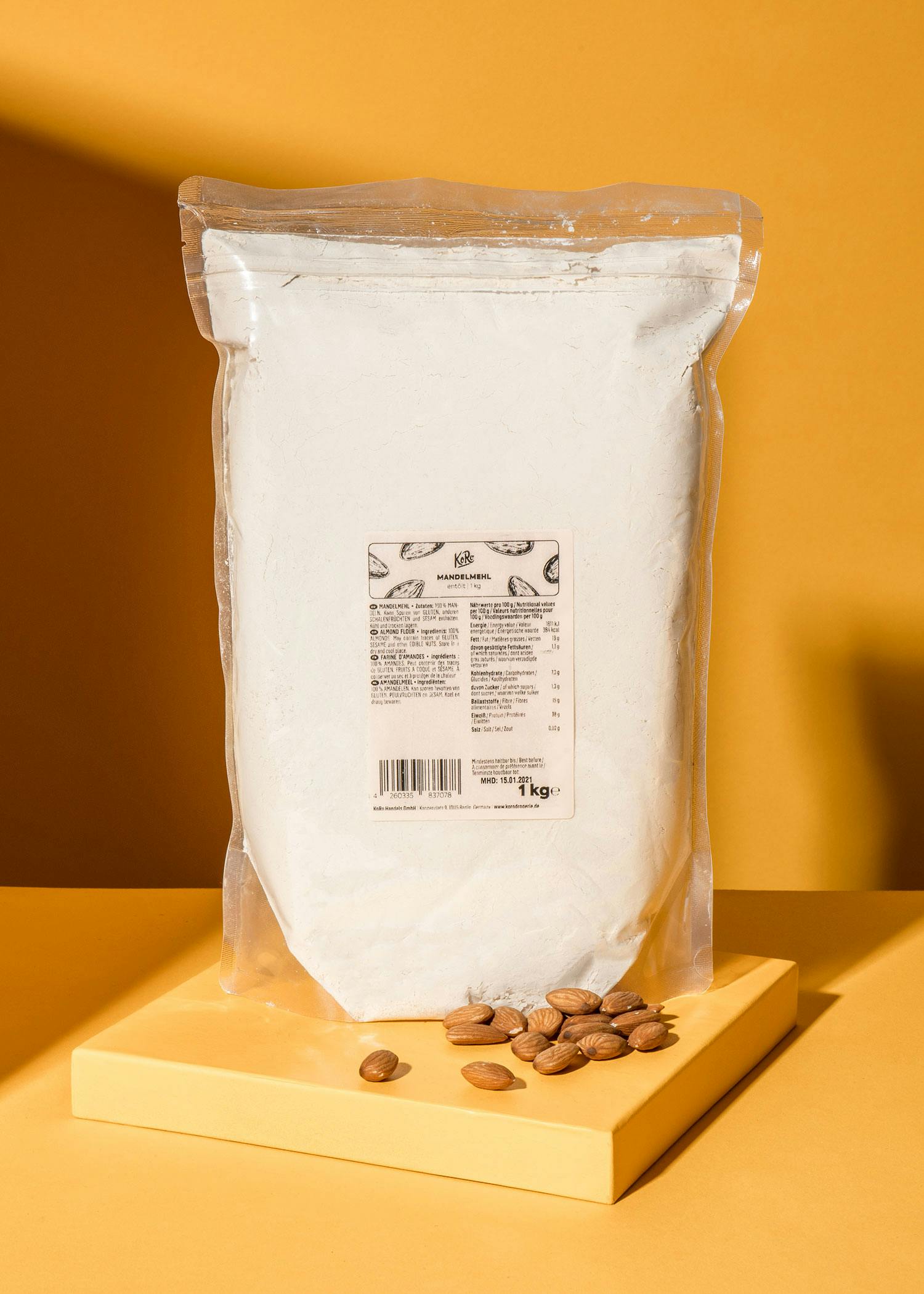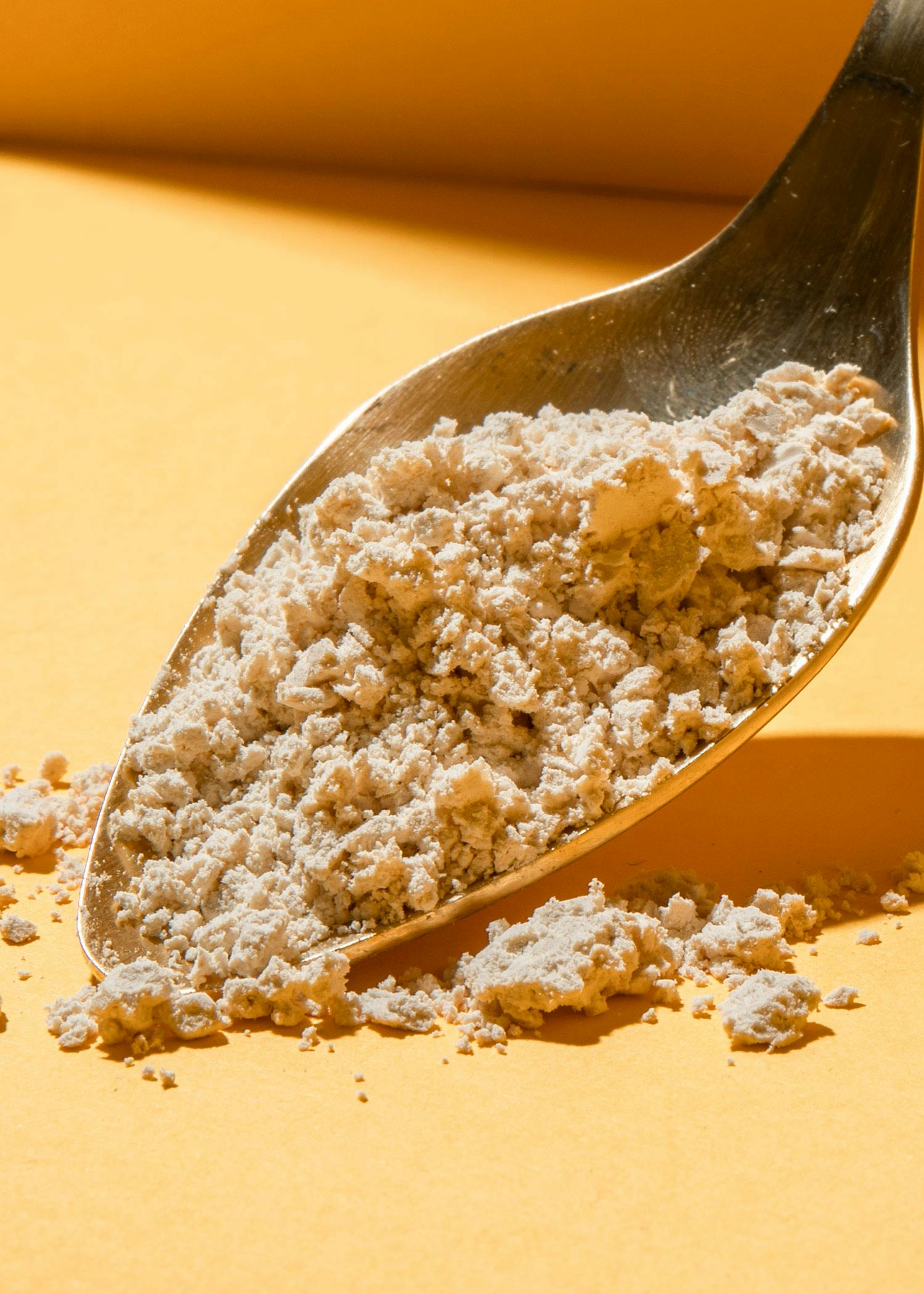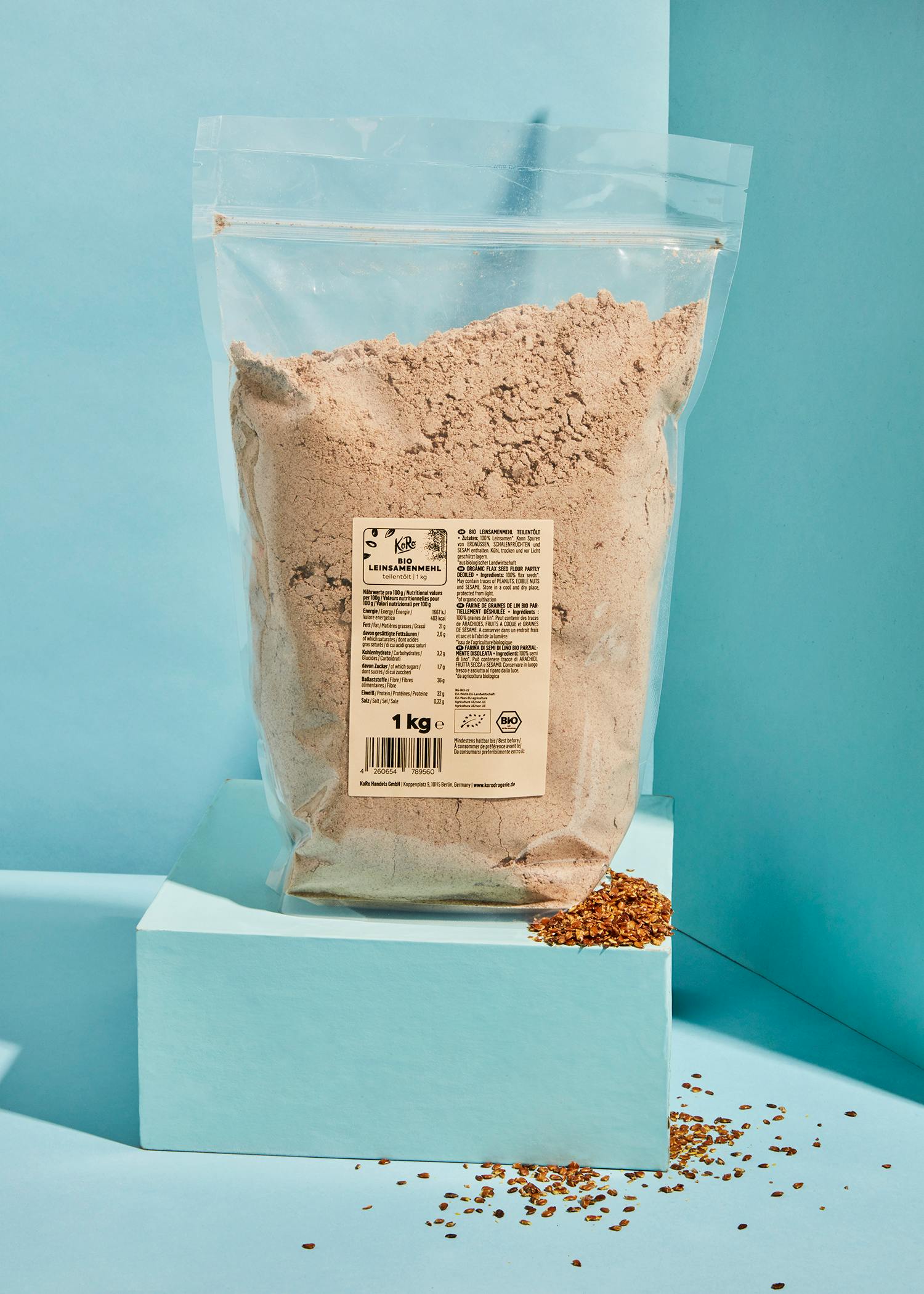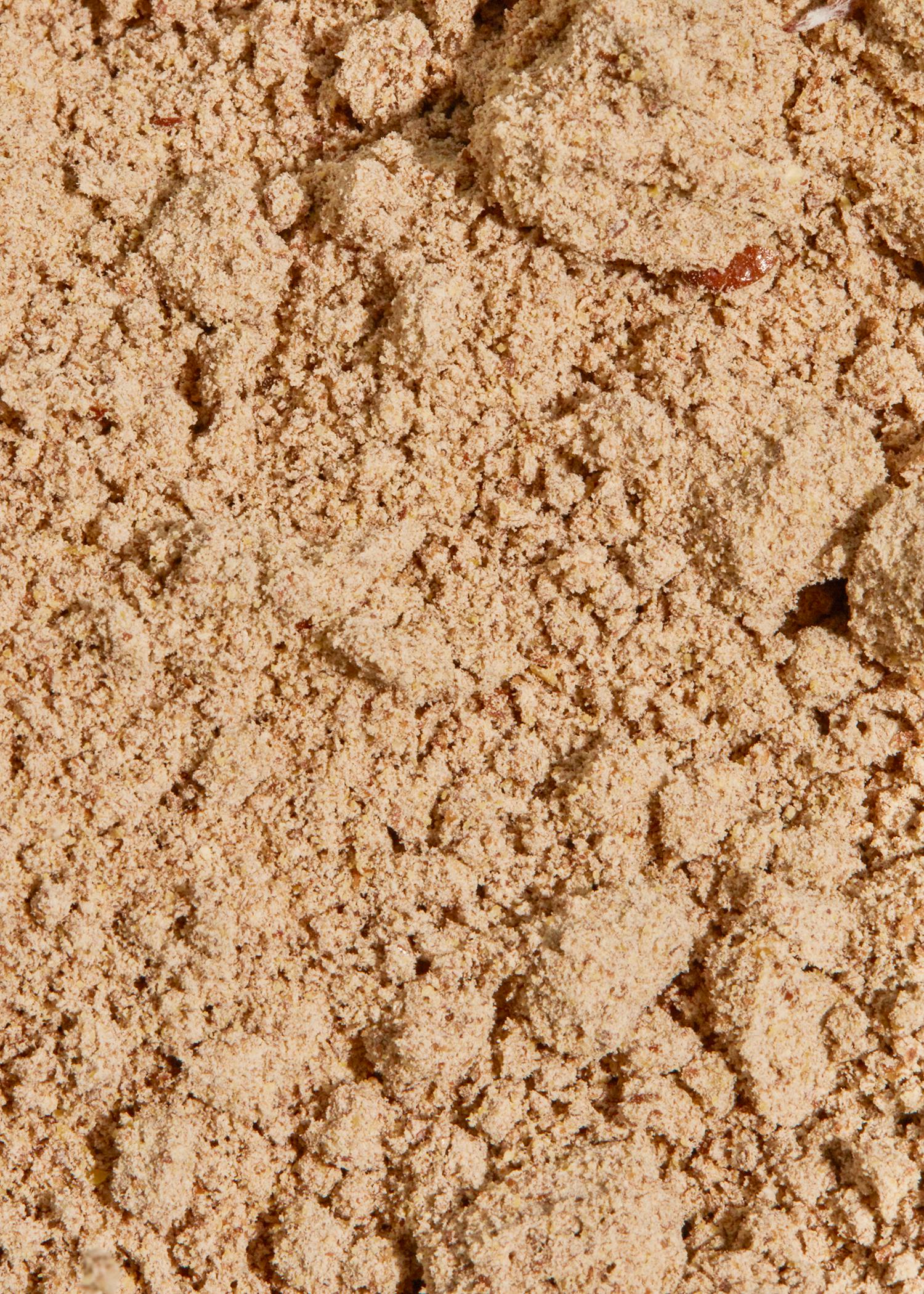What does "de-oiled" mean?
To put it simply: de-oiled means that oil has been removed from foods that contain a lot of oil. Surprise! This can be done partially or completely and is mainly done with nuts and seeds. The food is then separated into flour or powder and - logically - oil.
Why de-oiling?
First of all: de-oiling is not done because oil is a food that you want to get rid of. Quite the opposite - unsaturated and polyunsaturated fatty acids, which are contained in nuts and seeds, for example, are responsible for a number of important processes in the body. For example, some vitamins can only be utilized in combination with fat.
But back to the topic: de-oiling is used because it allows foods such as almonds or linseed to be processed into a different product, namely flour. De-oiling turns one product, e.g. peanuts, into two new products: peanut flour and peanut oil. If you simply grind the nuts finely without de-oiling them to obtain flour, the consistency would simply be different from that of conventional flours - namely too oily. As a result, your dough would not rise as light and fluffy.
De-oiling also contributes to food diversity. (Partially) de-oiled flours made from nuts can be particularly helpful for people who are on a restricted diet, perhaps due to a gluten intolerance. You can replace traditional cereal flours with almond flour, for example, and also enjoy fresh, nutty-smelling baked goods - what could be better?
If your mouth is watering too, we'd like to introduce you to three of our partially de-oiled KoRo favorites and explain how you can use them!
Partly de-oiled organic peanut flour
We just say: peanut waffles! Simply replace the flour in your favorite waffle recipe with peanut flour for the nuttiest and fluffiest waffles you've ever had! And as if that wasn't enough, bonus points for the protein content: our partially de-oiled organic peanut flour contains 45 g of protein per 100 g. And as KoRo gourmets, we don't need to tell you that the waffles taste even better with peanut butter and maple syrup!
Strongly or weakly de-oiled organic cocoa powder
Cocoa powder is, of course, the classic for anyone who loves cozy rainy afternoons with a fragrant cup of hot chocolate or coffee and (chocolate) cake with family and friends.
Hot chocolate or chocolate smoothies: thanks to our organic, lightly de-oiled cocoa, it's simply delicious and extra creamy! And if you want to make brownies, energy balls or pancakes, grab our highly de-oiled organic cocoa powder - it's perfect for your next baking creation! Both are guaranteed to be super intense and deliciously chocolaty.
Partly de-oiled organic hemp protein 1 kg
In addition to lots of fiber and plant-based protein, our partially de-oiled organic hemp protein will put you in a good mood - that's a promise! And not because of the intoxicating effect of hemp - that's the wrong kind - but because of its beautiful light green color. You can use the hemp protein in pesto, sauces or together with pulses for plant-based burger patties. It looks good!





